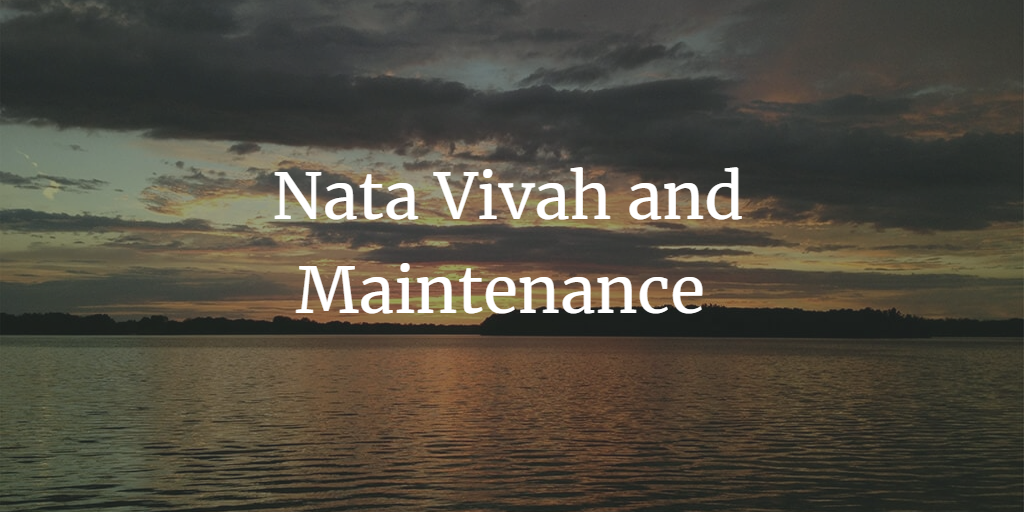Nata Vivah (Marriage) and Maintenance related issues under Section 125 CrPC

Table of Contents
Introduction
Nata Vivah: What is it?
Section 125 CrPC: Maintenance Provisions
Maintenance Issues in Nata Vivah
Legal Remedies for Maintenance Issues in Nata Vivah
Conclusion
1. Introduction
Nata Vivah, a customary form of marriage in India, has been a subject of debate due to its informal nature and lack of proper documentation. This article aims to provide an understanding of Nata Vivah, Section 125 of the Code of Criminal Procedure (CrPC) relating to maintenance provisions, maintenance issues arising in Nata Vivah, and the legal remedies available to address these issues.
2. Nata Vivah: What is it?
Nata Vivah is a customary form of marriage practiced in certain regions of India, particularly in the tribal communities. It is an informal union where the couple does not undergo any religious ceremony or legal registration. Due to its informal nature, Nata Vivah often lacks proper documentation and legal recognition, making it difficult for the parties involved to claim their rights in case of disputes.
3. Section 125 CrPC: Maintenance Provisions
Section 125 of the Code of Criminal Procedure (CrPC) deals with the provision of maintenance to wives, children, and parents who are unable to maintain themselves. The objective of this provision is to prevent destitution and vagrancy by ensuring that those who are legally bound to maintain their dependents fulfill their obligations.
The maintenance order under Section 125 CrPC can be granted in favor of:
A wife who is unable to maintain herself, provided she has not remarried or has not been living in adultery
A legitimate or illegitimate minor child who is unable to maintain themselves
A legitimate or illegitimate adult child who is unable to maintain themselves due to physical or mental abnormalities
A father or mother who is unable to maintain themselves
4. Maintenance Issues in Nata Vivah
In Nata Vivah, maintenance issues arise due to the informal nature of the marriage and lack of legal recognition. As a result, wives and children from such marriages often face difficulties in claiming their rights to maintenance under Section 125 CrPC. Some common issues include:
Proving the existence of a valid marriage, as Nata Vivah lacks proper documentation and registration
Establishing the paternity of children born out of Nata Vivah, in the absence of any legal recognition of the union
Difficulty in enforcing maintenance orders, as the husband may deny the existence of the marriage or dispute the paternity of the children
5. Legal Remedies for Maintenance Issues in Nata Vivah
Despite the challenges faced by parties in Nata Vivah regarding maintenance issues, there are certain legal remedies available:
Evidence of marriage: In the absence of proper documentation, evidence of marriage can be provided through witness testimonies, photographs, or any other relevant proof demonstrating the existence of the marital relationship.
Establishing paternity: DNA testing can be sought as a means to establish paternity in case of disputes related to the parentage of children born out of Nata Vivah.
Alternative legal recourse: Parties in Nata Vivah can seek relief under the Protection of Women from Domestic Violence Act, 2005, which provides for maintenance even in cases of live-in relationships or informal marriages. In such cases, the woman can be considered as an 'aggrieved person' and can claim maintenance, residence rights, and protection orders.
Legal awareness and assistance: The government and non-governmental organizations should work together to create awareness about the rights and remedies available to parties in Nata Vivah. Legal aid and assistance should be provided to such parties to help them navigate the legal process and claim their rightful maintenance.
6. Conclusion
Nata Vivah, being an informal form of marriage, often leads to maintenance-related issues due to its lack of legal recognition and proper documentation. However, there are legal remedies available to address these challenges. The key is to create awareness about these rights and to ensure that the parties involved in Nata Vivah have access to legal aid and assistance to claim their rightful maintenance under the existing legal provisions.


